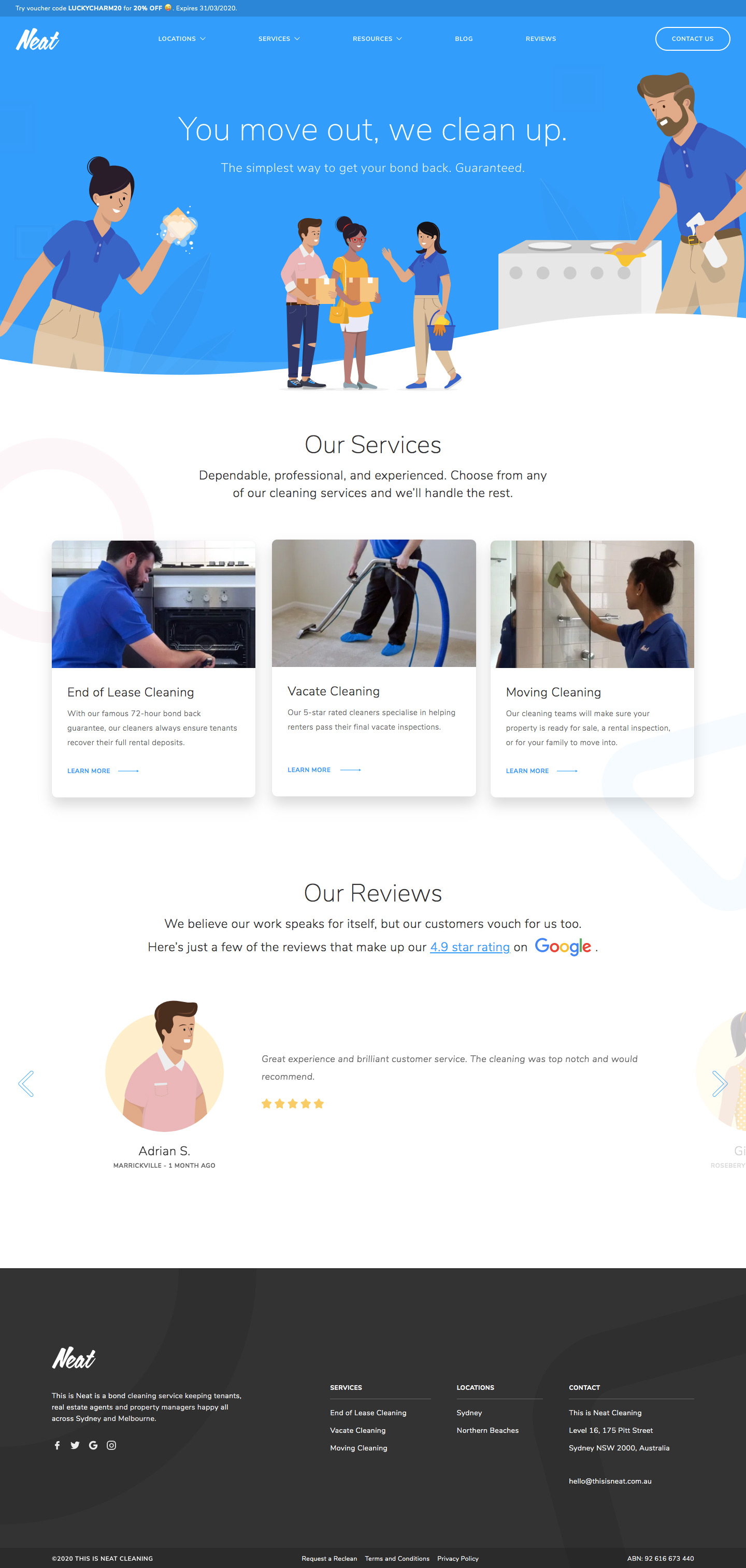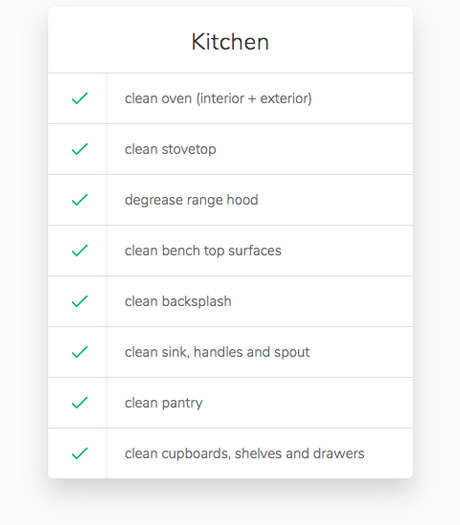


The Anti "Uber of" Cleaning
Giving a small business a fighting chance
With the trend of the "uber of" company becoming more ubiquitous, the question remains, is there still room for the small business? This is Neat is striving to answer that very question (and maybe prove some doubters wrong) by competing with the rise of Australian "on-demand" cleaning companies.
Living in Sydney, I've had the pleasure of moving from Surry Hills to Newtown. In doing so, I was surprised by two very interesting Australianisms. First, it's the norm for rental properties to be managed by real estate agents and second, that they would prefer you use a professional end of lease cleaning service when moving out. As it turns out, an entire industry of cleaning exists to mediate this tug of war between tenant and real estate agent.
With This is Neat, I've had the opportunity to help a small business by designing and developing the strategies behind their online presence. Now they can focus on what they do best, helping tenants get their bonds back with the perfect clean.
Research, Strategy, & Concept
It's been said before, but there's no substitute for first-hand experience. To really understand the client, I ditched the keyboard and put on a pair of gloves. Working beside the cleaners, it became evidently clear that the largest problem they faced was in communication. As a Sydney end of lease cleaning company, customers were often getting their first bond cleans, not knowing quite what to expect.
From the checklists to the checkout, the copy to the quote form, the focus across the website was to educate. In doing so, the cleaners were able to perform at a much higher satisfaction rate as customer's expectations were never inflated. By being completely transparent about the service, the cleaners could always be confident in the service they delivered.
A very real example of addressing this communication gap was in the redesign of the quote form. It's widely accepted that less form fields results in more conversions. However, after going on several cleans, I realized it was at the expense of user experience.
While the site converted well, by reducing the number of form fields in the quote the cleaners didn't receive all the information they needed to perform to the best of their abilities. With this insight, the quote form was redesigned to use conditional form fields, hiding and showing extra inputs only if the user showed any interest.





